 |
 |
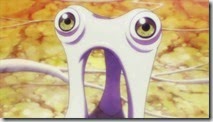 |
Pretty tough to fight on without your right-hand man.
It’s been a bit left behind as the scope of the story has broadened in recent weeks, but the center of Parasyte has always been the relationship between Shinichi and Migi. If this is a show about the relationship between humans and parasites, then this particular relationship is the eye of the hurricane – the microcosm and emotional center of all of it. And with the larger battle seemingly having been decided for the moment, it’s free to command the stage again in a big way.
I think we can assume Uragami will re-enter the picture at some point in the final two episodes, but for now Goutou is the one driving everything in the plot. It intrigues me to speculate as to what his long game is, with Hirokawa and most of his allies dead. Goutou doesn’t seem like the type to take up the mantle of avenging for his species – he’s not big-picture oriented by any means. Perhaps he means simply to kill and eat, but the one thing that does seem to intrude on his worldview is the desire to kill Shinichi. Perhaps it’s a sense of unfinished business that bothers Goutou, or the notion that this is the one combat opponent he’s faced who’s lived to tell the tale.
I found Migi’s “I’m sorry to spoil the mood” comment hilarious given what he was obviously referring to, but it signaled the end of playtime and the beginning of the final showdown whose timing it was always Goutou’s privilege to decide. The place, however, is for Shinichi and Migi to choose – and it’s no surprise that Shinichi chooses to run to the woods, trying to minimize collateral damage as much as he can. Migi agrees, ostensibly because it matches up with a plan he’s been concocting but one suspects he’d have agreed anyway. Fortunately Migi has taught himself how to drive (this isn’t America where 16 year-olds are allowed behind the wheel) and a place of reckoning deep in the mountains is chosen.
Migi’s plan is a good one. First, to crash their (stolen) car into Goutou’s by sending it plummeting from the switchback above. When that fails, the next stage is to separate – assuming (correctly) that Goutou will be unable to detect the parasite cells in Shinichi’s body. Fire and decapitation is the reckless, desperate stratagem – and it almost works, but not quite. And in the end, when Migi knows he’s failed, he orders Shinichi to save himself. I think the interesting question here is whether Migi has developed this empathy and altruism through his close connection to Shinichi, or whether it was latent in him all along. I doubt Iwaaki-sensei will ever overtly answer it, but I think the Ryouko experience tells us what the author’s beliefs on this subject are.
I do kind of wish Migi and Shinichi had been more relevant in recent episode, because it would have made Migi’s “death” and their parting that much more poignant. But it was plenty powerful as it was, reminding me of a certain development in a brilliant manga/anime about an ancient Chinese board game – the true depth of feeling only inescapable when the omnipresent friend is taken away. There’s a lot of truth in this relationship, and it was never over-sentimentalized – just believable and ever-evolving, the way deep human relationships always do. If Migi were really gone, I would have said his death was a bit too sudden – but at the very least he quite literally lives on in Shinichi, a part of him for as long as Shinichi himself lives on. Whether that manifests itself more literally we’ll have to wait and see.
Wounded, desolate and alone, Shinichi tries to sneak a drink on the property of a mountain widow, Mitsuyo (Fujiji Seiko). Thus begins a new friendship, and odd and endearing one between a lonely old lady and a lost boy. She dubs him (Crayon?)”Shin-chan”, and immediately puts Shinichi to work helping her with the shopping – warning him to pose as her nephew because the locals are “suspicious of outsiders”. Mitsuyo’s choice of words about Shinichi’s injury – she suspects he was being “bullied” – is certainly not coincidental. And this idyll obviously can’t last for long. It soon enough becomes apparent that Goutou is Goutou-ing nowhere until he’s had his reckoning with the human half of his enemy, and though the locals suspect those dreaded outsiders when a man is murdered, Shin-chan knows the eyewitness is telling the truth about what he saw. And that for as long as he stays in this place, everyone who lives near it will be a target.
There are major questions remaining for the final two episodes – Uragami’s presence, Goutou’s intentions, whether Migi is still capable of manifesting a distinct persona, the meaning of the huge heaps of garbage dumped outside the mountain village. But the dominant theme at the moment is more of a quiet and elegiac one. Mitsuyo scolds Shinichi for his intent to “use” his life to try and stop the monster before it kills again, and this is a person who’s lived a long life and been touched by death urging a youngster to treasure what a gift life is. And indeed, Migi has given his own life so that Shinichi can keep living, and Shinichi would be disrespecting Migi’s sacrifice by not valuing his life sufficiently. There’s no shame in running, Mitsuyo tells Shinichi – doing everything you can to live is far more noble than giving up. This emphasis on the gift of life, grabbing at it and fighting for it, has been the dominant theme of the last two episodes – a fascinating turn for a series that’s been so filled with death.
 |
 |
 |
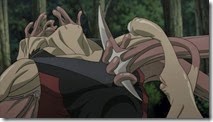 |
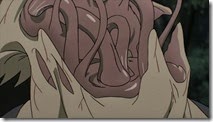 |
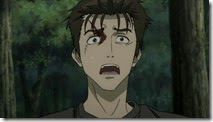 |
 |
 |
 |
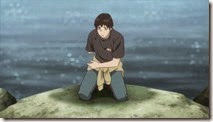 |
 |
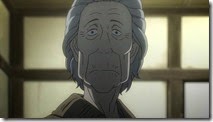 |
 |
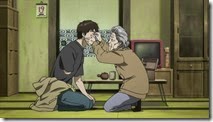 |
 |
 |
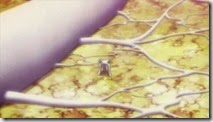 |
 |
 |
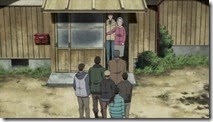 |
 |
 |
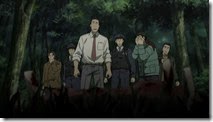 |
 |
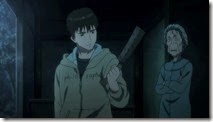 |
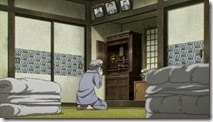 |
 |


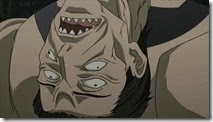
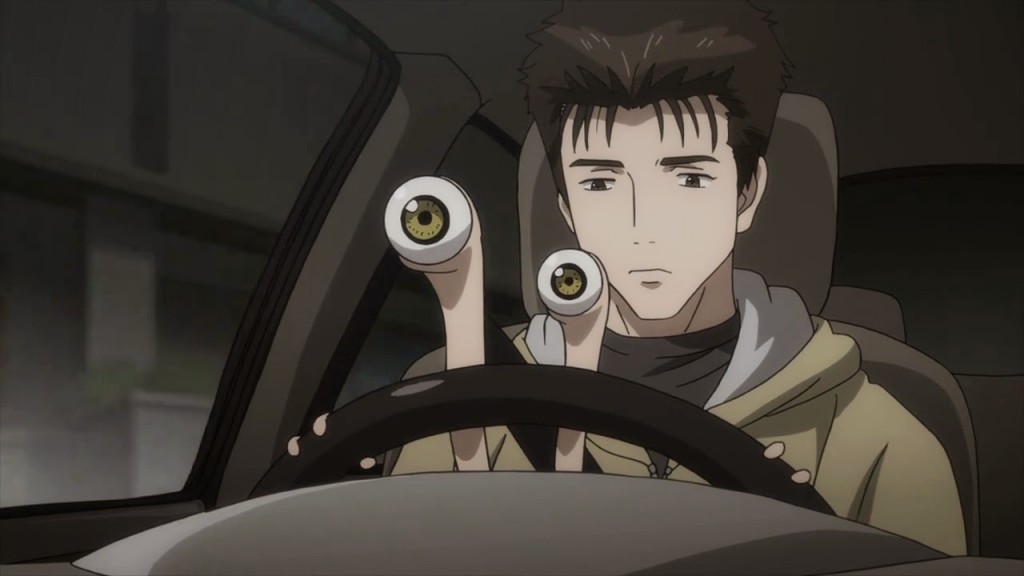
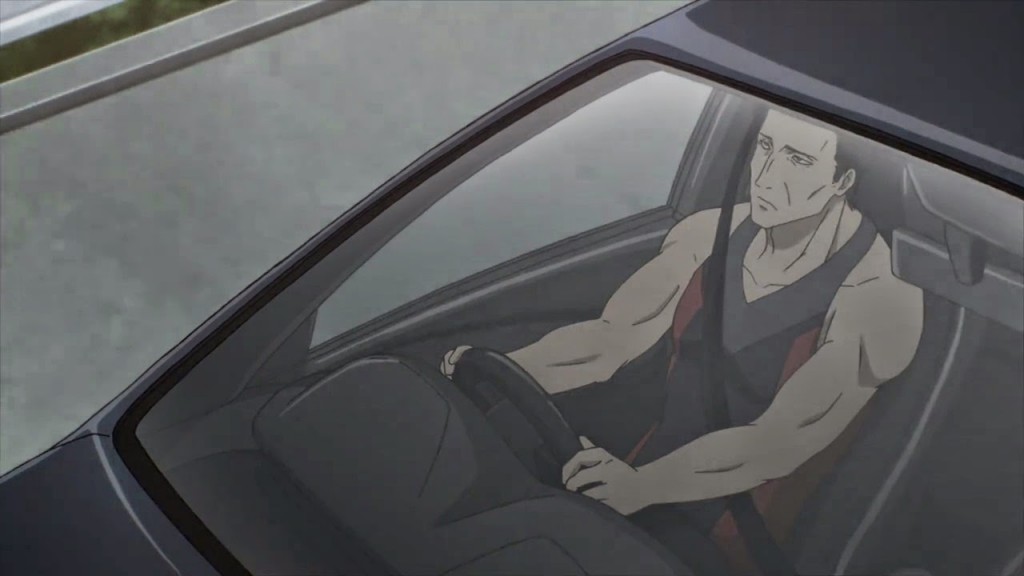
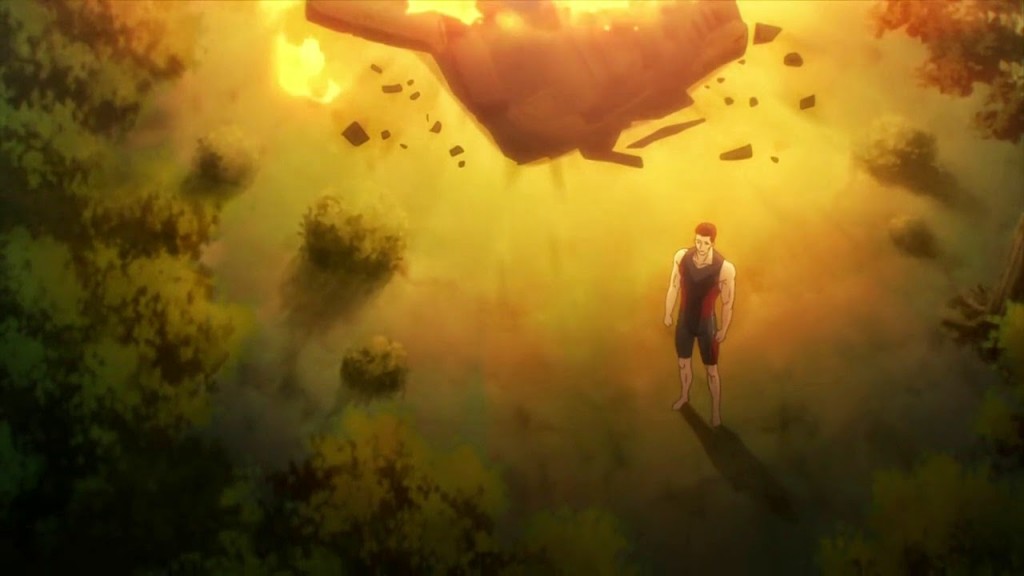
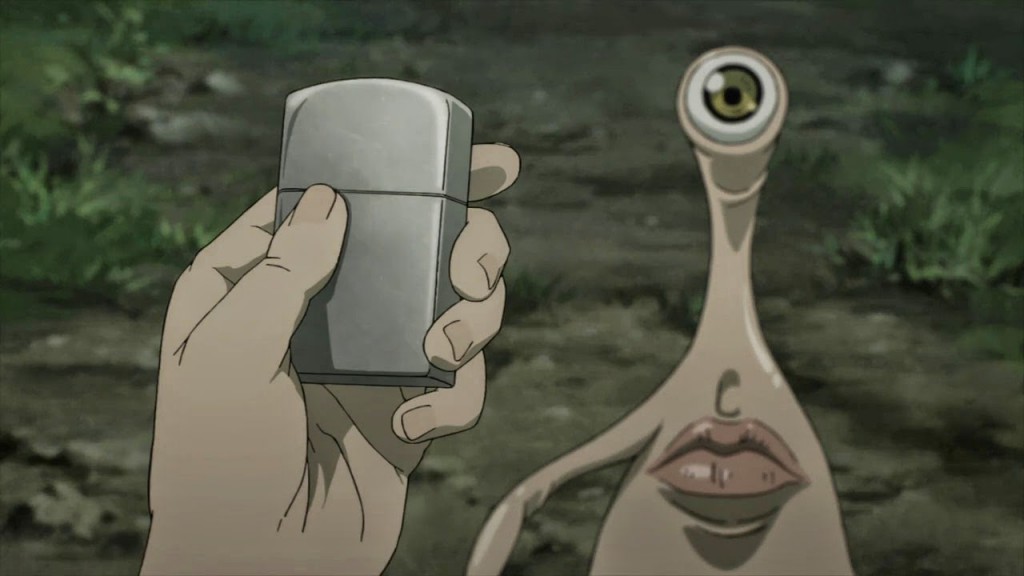
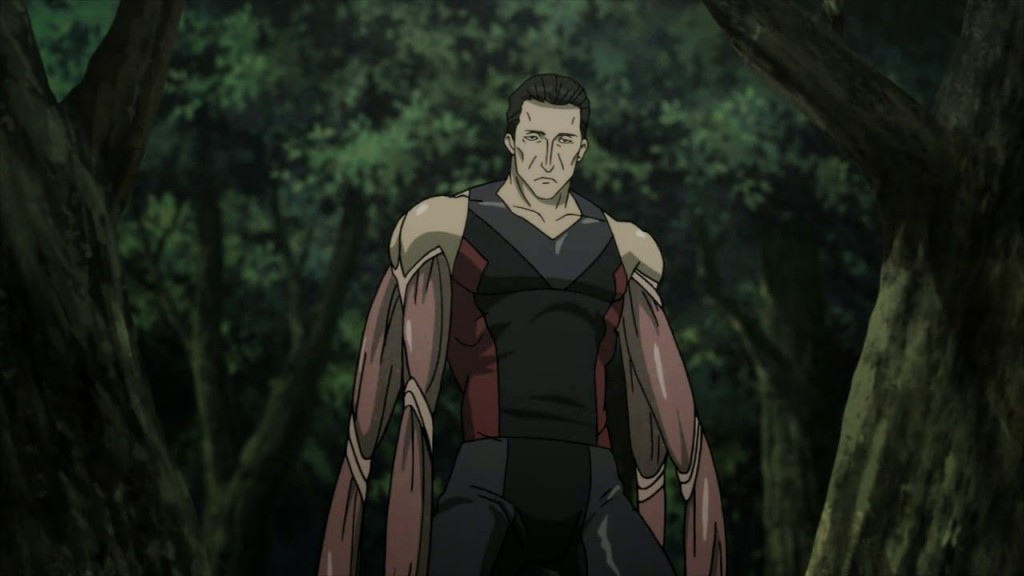
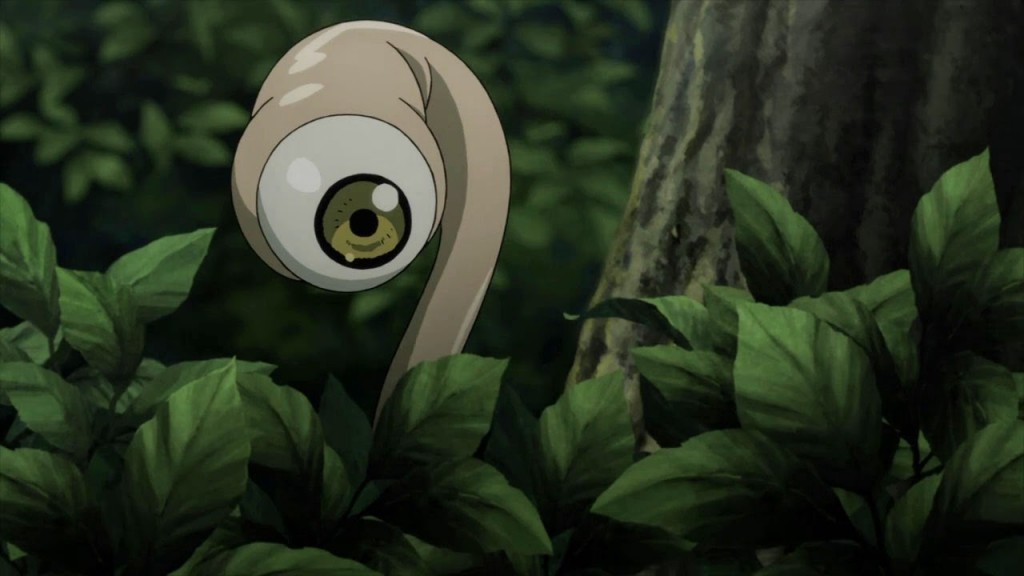
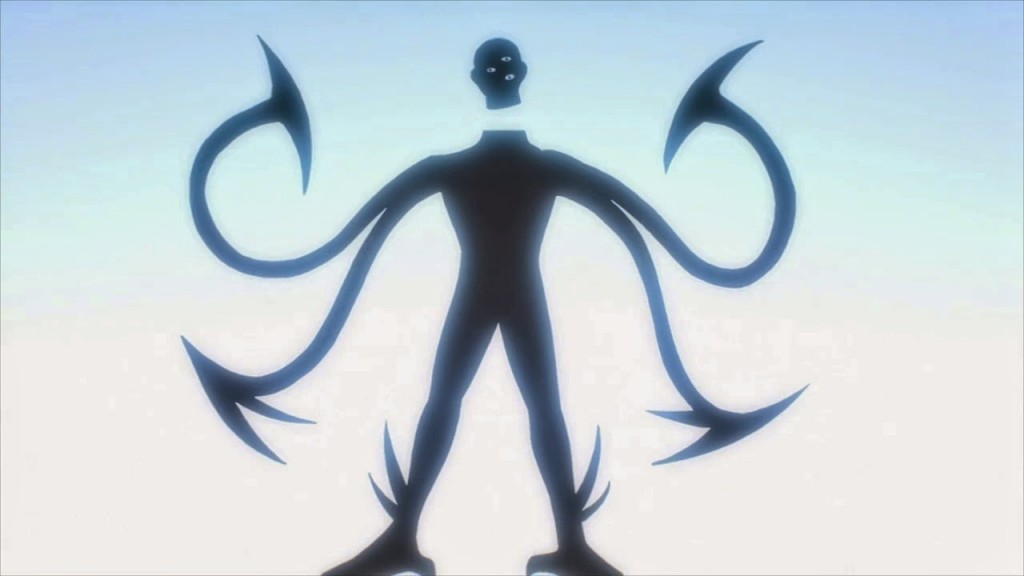


sonicsenryaku
March 12, 2015 at 5:27 amIm glad you mentioned human empathy, because i think that's a major theme in this ep. The fact migi remarks dying alone (which shows how far he has come) and then we see a lonely old lady take in shinichi, and be so kind to him goes to show that humans genuinely empathize with the aspect of loneliness. Whether we do this just so we can deal with our own loneliness, who knows; but the old lady's relationship with shinichi in my opinion represents the capacity for human beings to take in those who have lost their way without having any prior relationship with them and as a result, filling the void in each others hearts.
She was there when shinichi had no one; as such, he is now able to understand that others may lose loved ones and become alone like him unless he takes care of gotou. For the first time, shinichi isnt fighting the parasites out of hate, he is doing it because he knows he cant let gotou take innocent lives anymore. The stakes just became larger in a subtle way. It's things like this that make parasite in my opinion a good show. It has it's rough edges if im to be honest but how it properly resonates its themes with its characters in relation to it's narrative set pieces makes up for those rough patches.